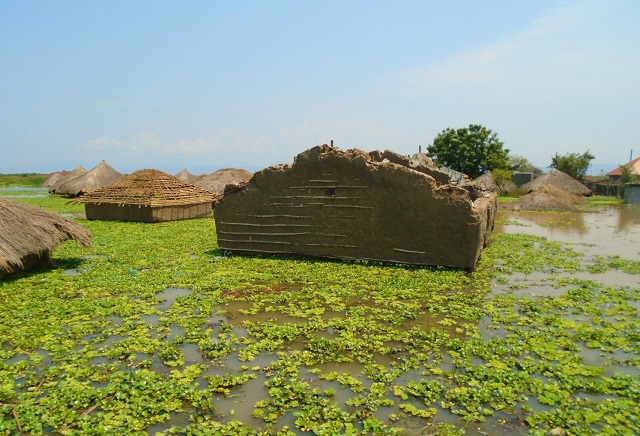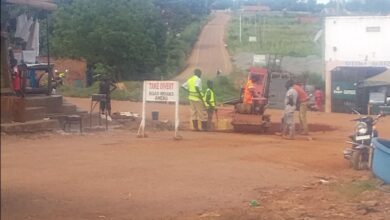Buliisa residents want government to take action on devastating floods
He says says they have partnered with communities to plant trees and have also done assessments for the flood-affected people.

Buliisa: As the rainy season sets in, Buliisa residents have expressed worry over persistent floods that have destroyed their gardens, causing food insecurity and leaving them homeless.
According to residents, for over a year now, their farmlands have consistently been submerged by flood water, silt, and soil sediments, which they blame on massive clearing of vegetation cover and cutting down trees to pave the way for oil and gas activities.
Evelyne Nyakato, a subsistence farmer from Kasinyi village in Buliisa Sub County, says the floods, which are worsened by rainy seasons, have forced her to abandon her garden.
“The floods destroyed my one acre of cassava in May last year, but I thought this was temporary. But over time, the consistent floods have forced me to abandon the land. This has affected my income and left me food insecure since it has been my source of livelihood,” said Evelyne Nyakato, a mother of four.
Alice Kazimura, an environmental activist in Buliisa, says most women in Buliisa largely depend on farming for their livelihood. She, however, expressed concern over the increasing floods coupled with wildlife invasion and massive infrastructure in the area for oil and gas activities that are slowly pushing farmers out of viable agricultural land.
She blames the floods on oil activities, including the construction of the industrial area and other related developments that have led to massive clearing of green vegetation in the area. Kazimura urges the government and oil companies to prioritize the needs of the host communities in the ongoing oil and gas activities.
In 2021, Total Energies began the construction of an industrial area that hosts the central processing facility, the camp for workers, and also feeder pipelines that connect to the controversial East African Crude Oil Pipeline (EACOP).
EACOP is expected to be the world’s longest oil pipeline, with the potential to release carbon into the atmosphere, according to scientists. Total Energies is leading the multibillion-dollar project, which will help to transport crude oil through a 1,443-kilometer pipeline to the port of Tanga in Tanzania.
EACOP has faced constant criticism from climate activists who have called on investors not to inject funds in the project, saying that it will increase greenhouse emissions, thus exacerbating the climate crisis. Recently, over 30 youth were arrested in Kampala while marching to the Chinese Embassy to deliver a petition to stop the construction of EACOP.
In addition, a report by Human Rights Watch noted that the construction of EACOP poses grave environmental risks since it traverses sensitive ecosystems, posing threats to the biodiversity and ecosystems that local communities depend on for their sustenance.
Rajab Bwengye, the coordinator of programs at NAPE, says the dangers of EACOP and other developments are already manifesting through the floods, loss of livelihoods, and destruction of biodiversity, calling on the government to prioritize the needs of communities over profit.
However, Chris Ocowun, the spokesperson for Total Energies, says they have partnered with communities to plant trees and have also done assessments for the flood-affected people.
Do you have an advertisement or article you want to publish? Mail us at theugreports@gmail.com or WhatsApp +256394700683.






